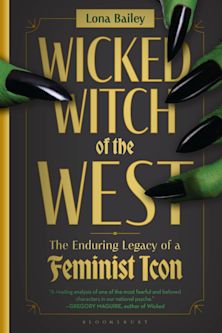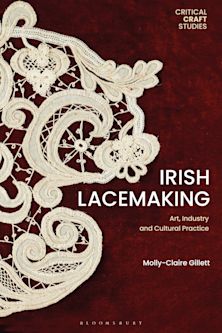Women in the Great European Revolutions
Gender, Culture, Class, and the State
- Textbook
Women in the Great European Revolutions
Gender, Culture, Class, and the State
- Textbook
Description
This book explores and compares the roles, mentalities, and destinies of elitist and working-class women in Europe's most dramatic revolutions: England's “Puritan Revolution” of 1640-1660, France's 1789 Revolution, and Russia's 1917 Revolution.
By providing one of the most detailed analyses to date of how feminist historians, sociologists, and specialists theorize gender, sexuality, and patriarchy the author draws connections to current debate over the causation of sociopolitical revolutions; and how such scholars speculate about the long-term implications of such revolutions for women in the USA and in other countries. This book briefly outlines the stage-by-stage progression of events in the English, French, and Russian Revolutions, thus enabling the general reader to contextualize more easily its discussion of women's revolutionary experiences in those countries.
This book reappraises the relative importance ascribable to gendered/cultural and to statist/geopolitical factors through the disastrous revolutionary careers of three consort queens: i.e., Henrietta Maria of England, Marie-Antoinette of France, and Alexandra Feodorovna of Russia. by contrasting their political failings with the political acumen of three earlier regnant queens in these three countries: i.e., Elizabeth I, Cathérine de Médicis, and Catherine II (“the Great.”)
Finally, this book demonstrates how women of humble social station used these unheard-of revolutionary situations either to express their grievances and voice their social aspirations or, on the other hand, to reaffirm their long-held allegiance to traditional principles, customs, and religion. It concludes by discussing race/ethnicity and statism as challenging issues that need to be confronted in any current discussion of women's revolutionary experiences.
Table of Contents
Introduction: Women in the European Revolutionary Experience
Chapter 1: Theorizing Gender in Revolutionary Situations
Chapter 2: A Brief Sketch of the English, French, and Russian Revolutions
Chapter 3: Unsuccessful Consort Queens in the European Revolutions: Gender, Culture, and “Strategic Politics”
Chapter 4: Women's Emancipatory Roles in England, France, and Russia
Chapter 5: Disillusioned and Traditionalist Women Confronting Revolution
Conclusion: Race/Ethnicity and Statism as Women's Revolutionary Problematics
Suggestions for Further Reading
Index
Product details

| Published | 30 Oct 2025 |
|---|---|
| Format | Ebook (Epub & Mobi) |
| Edition | 1st |
| Extent | 328 |
| ISBN | 9798765153215 |
| Imprint | Bloomsbury Academic |
| Publisher | Bloomsbury Publishing |
Reviews

ONLINE RESOURCES
Bloomsbury Collections
This book is available on Bloomsbury Collections where your library has access.


































